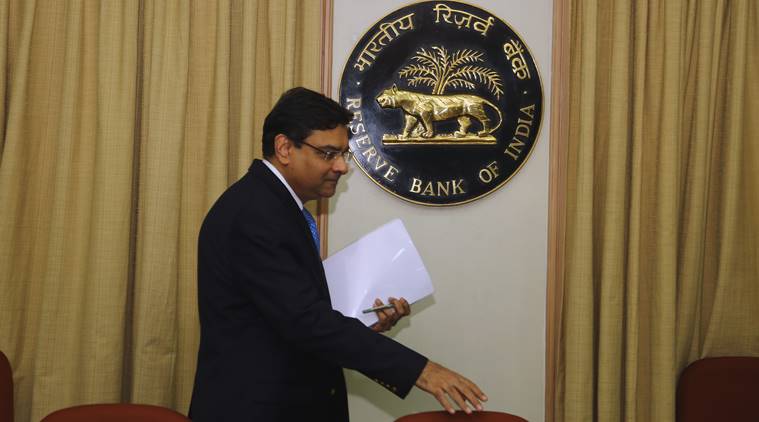Stay updated with the latest - Click here to follow us on Instagram
RBI to form panel to review transfer of surplus to govt, restructure loans to stressed MSMEs
Moreover, keeping in mind the liquidity crisis, the RBI has also decided to inject Rs 8,000 crore into the system by purchasing government securities under Open Market Operations on November 22.
 Reserve Bank India governor (RBI) Urjit Patel. (File)
Reserve Bank India governor (RBI) Urjit Patel. (File)
Following a marathon nine-hour board meeting of the Reserve Bank of India on Monday amid a rift with the government over a multitude of issues, the central bank has decided to form a panel that would review the economic capital framework, which governs the RBI’s capital requirements and terms of the transfer of its surplus to the government.
In what is seen as a conciliatory move towards the government’s demands, the RBI board asked the central bank to come up with a scheme for loan restructuring of stressed Micro, Small and Medium Enterprises. Latest RBI data shows that banks’ credit outstanding to the MSMEs sector has seen a contraction for the first time in 14 months in September 2018.
Explained: The reserves in Reserve Bank
“The Board also advised that the RBI should consider a scheme for the restructuring of stressed standard assets of MSME borrowers with aggregate credit facilities of up to Rs 250 million, subject to such conditions as are necessary for ensuring financial stability,” an RBI statement said.
RBI Central Board meets at Mumbaihttps://t.co/9LQMSLLPhm
— ReserveBankOfIndia (@RBI) November 19, 2018
With regard to banks under Prompt Coercive Action (PCA) framework, it was decided that the matter would be examined by the Board for Financial Supervision (BFS) of RBI.
Eleven state-owned banks have been placed under the PCA framework. The PCA is triggered when the financials of banks deteriorate in terms of capital and return on assets leading to the regulator imposing restrictions, including on lending and payment of dividend, and boosting the loan book.
Moreover, keeping in mind the liquidity crisis, the RBI has also decided to inject Rs 8,000 crore into the system by purchasing government securities under Open Market Operations on November 22. Ensuring relief and more credit to small and medium firms, and easing restrictions on state-owned banks to boost lending was among the sticky issues between the government and RBI. A relaxation in prompt corrective action (PCA) norms will help state-owned banks kick-start lending to MSMEs.
 Viral Acharya (right) said Governor Urjit Patel suggested he explore the theme of autonomy in his speech (Express Photo by Ganesh Shirsekar/File)
Viral Acharya (right) said Governor Urjit Patel suggested he explore the theme of autonomy in his speech (Express Photo by Ganesh Shirsekar/File)
The decisions were taken in a meeting of the 18-member board, which includes central bankers, government officials and industrialists. The board meeting, termed by former finance minister P Chidambaram as a “day of reckoning”, came amid friction between the RBI and the Centre over perceived government interference in the central bank’s autonomy. The meeting took place at the central bank’s headquarters in Mint Road.
The BSE benchmark Sensex rallied over 300 points on Monday to end at over six-week-high of 35,774.88 as investors widened their portfolios ahead of the outcome of the RBI board meeting amid FPI inflows.
READ | RBI: Why a ‘joint family’ story from the past is creating a buzz today
Even though talks were also on with the RBI to align its capital to risk-weighted assets (CRAR) norms with the Basel framework, the board decided to retain CRAR at 9 per cent. The Basel capital adequacy norm is 8 per cent. “The board, however, agreed to extend the transition period for implementing the last tranche of 0.625% under the Capital Conservation Buffer (CCB), by one year, ie, up to March 31, 2020,” the statement said.
The differences with RBI led to the government invoking, for the first time, a provision in the RBI Act-Section 7 to start the formal process of consultation with the RBI Governor on issues such as easing the PCA framework for PSU banks, boosting liquidity and credit to medium and small enterprises and Non Banking Finance Companies (NBFCs), and transferring additional surplus from the RBI to the government.
On November 6, the Indian Express reported that a proposal by the Finance Ministry seeking to transfer a surplus of Rs 3.6 lakh crore, more than a third of the total Rs 9.59 lakh crore reserves of the central bank, to the government was not accepted by the RBI. However, Economic Affairs Secretary Subhash Chandra Garg later tweeted that reports of the government seeking a huge transfer of surplus funds were not true.
In a hard-hitting speech last month, RBI Deputy Governor Viral Acharya had talked about the independence of the central bank, arguing that any compromise could be “potentially catastrophic” for the economy.







